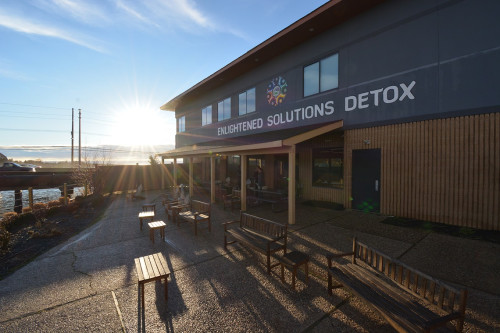
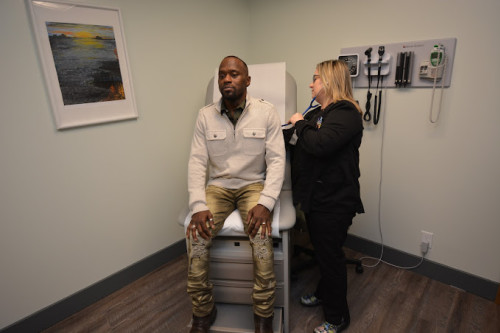
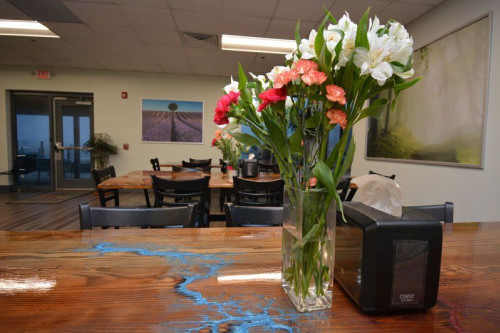

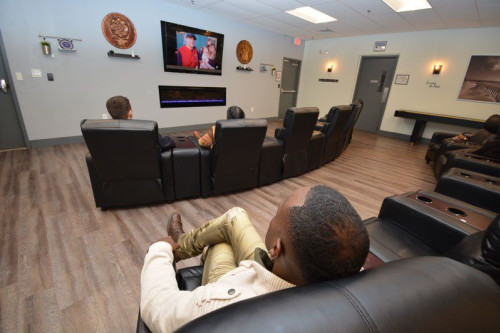




Enlightened Recovery Detox
Verified Center
This provider's information has been quality-checked by Recovery.com's Research Team for accuracy and completeness, including center verification through appropriate third-party organizations.
Treatment Focus
This center primarily treats substance use disorders, helping you stabilize, create relapse-prevention plans, and connect to compassionate support.
Primary Level of Care
Typically the initial stage of treatment for substance use, focusing on medically supervised management of withdrawal symptoms
Treatment Focus
This center primarily treats substance use disorders, helping you stabilize, create relapse-prevention plans, and connect to compassionate support.
Primary Level of Care
Typically the initial stage of treatment for substance use, focusing on medically supervised management of withdrawal symptoms
Provider's Policy
We work with most insurance providers in the U.S. to provide the best possible coverage and minimize your out-of-pocket expenses.
Enlightened Recovery Detox
Enlightened Recovery Detox
About Enlightened Recovery Detox
Enlightened Recovery Detox provides medically monitored detox for drugs and alcohol. They personalize treatment each step of the way, beginning with thorough medical reviews and collaboration with other treatment providers. They offer medication-assisted treatment (MAT) during detox, providing comfort medications like Suboxone and Vivitrol. Enlightened Recovery Detox strives to provide a comprehensive first step in treatment with robust discharge plans and holistic treatments.
Medically Monitored Detox
The recovery process begins at Enlightened’s state-of-the-art medical detox facility, situated on New Jersey's beautiful Atlantic coast. Enlightened Recovery Detox monitors detox 24/7, with medical staff on site and a physician and nurse practitioner on-call 24/7. Clients receive a daily clinical schedule, tailored to their individual needs. They meet individually with their therapist and in groups for group therapy.
Comprehensive, Holistic Care
Enlightened Recovery Detox offers a variety of holistic services and an introduction to the 12-Steps, or other support groups. Their holistic services include yoga, Reiki, acupuncture, guided meditation, expressive and creative arts, massage, sound healing, and family constellation therapy. Enlightened Recovery Detox also offers equine therapy and family therapy.
Smooth Transitions into Further Treatment
Throughout their detox, clients have access to multiple on-site peer support groups and 1:1 consultations to help demystify detox and the next steps in treatment. Case management helps clients align their care with work and legal needs, and set up further care. Enlightened Recovery Detox provides a menu of organic meals, customized to the needs or restrictions of each client.
Waterfront Detox
Highlights from the Center
Highlights
These highlights are provided by and paid for by the center.
1-on-1 Counseling
Joint Commission Accredited
Certified Professionals
12-Step Approach
Center Overview
Treatment Focus
This center primarily treats substance use disorders, helping you stabilize, create relapse-prevention plans, and connect to compassionate support.
Joint Commission Accredited
The Joint Commission accreditation is a voluntary, objective process that evaluates and accredits healthcare organizations (like treatment centers) based on performance standards designed to improve quality and safety for patients. To be accredited means the treatment center has been found to meet the Commission's standards for quality and safety in patient care.

Enlightened Recovery Detox
Insurance Accepted
Cash Pay Rates
Estimated Cash Pay Rate
Center pricing can vary based on program and length of stay. Contact the center for more information. Recovery.com strives for price transparency so you can make an informed decision.



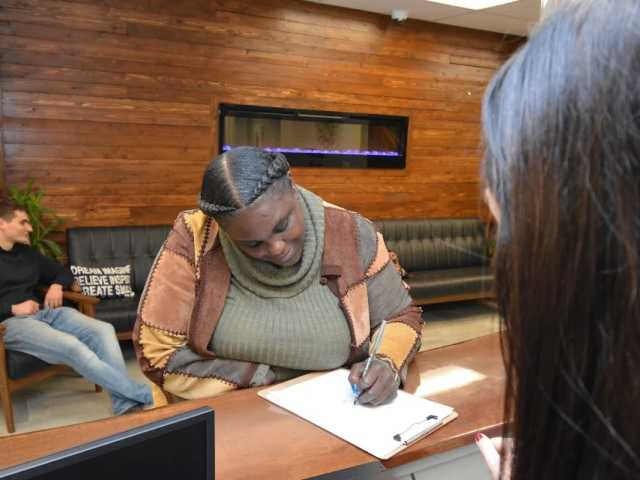
Residential Treatment with Enlightened Recovery
Recovery.com Verified Listing
Recovery.com verified that the name, location, contact information and license to operate for this treatment provider are valid and up-to-date.

Joint Commission Accredited

Licensed

NAATP Member
Recovery.com is an independent, third-party mental health resource. Verification does not imply endorsement and does not guarantee the quality of treatment services.
Your Care Options
Specializations
Cocaine
Cocaine is a stimulant with euphoric effects. Agitation, muscle ticks, psychosis, and heart issues are common symptoms of cocaine abuse.
Drug Addiction
Drug addiction is the excessive and repetitive use of substances, despite harmful consequences to a person's life, health, and relationships.
Opioids
Opioids produce pain-relief and euphoria, which can lead to addiction. This class of drugs includes prescribed medication and the illegal drug heroin.
Medication-Assisted Treatment
Combined with behavioral therapy, prescribed medications can enhance treatment by relieving withdrawal symptoms and focus patients on their recovery.
Alcohol
Using alcohol as a coping mechanism, or drinking excessively throughout the week, signals an alcohol use disorder.
Who We Treat
Men and Women
Men and women attend treatment for addiction in a co-ed setting, going to therapy groups together to share experiences, struggles, and successes.
Young Adults
Emerging adults ages 18-25 receive treatment catered to the unique challenges of early adulthood, like college, risky behaviors, and vocational struggles.
Midlife Adults
For adults ages 40+, treatment shifts to focus on the unique challenges, blocks, and risk factors of their age group, and unites peers in a similar community.
LGBTQ+
Addiction and mental illnesses in the LGBTQ+ community must be treated with an affirming, safe, and relevant approach, which many centers provide.
Treatment Services
Outpatient
During outpatient rehab, patients attend a structured treatment program while continuing to live at home.
Day Treatment
In a PHP, patients live at home but follow an intensive schedule of treatment. Most programs require you to be on-site for about 40 hours per week.
Intensive Outpatient Program
In an IOP, patients live at home or a sober living, but attend treatment typically 9-15 hours a week. Most programs include talk therapy, support groups, and other methods.
Detox
Detox fully and safely removes toxic substances from the body, allowing the next steps in treatment to begin with a clean slate.
Approaches
Twelve Step
Incorporating spirituality, community, and responsibility, 12-Step philosophies prioritize the guidance of a Higher Power and a continuation of 12-Step practices.
Holistic
A non-medicinal, wellness-focused approach that aims to align the mind, body, and spirit for deep and lasting healing.
Evidence-Based
A combination of scientifically rooted therapies and treatments make up evidence-based care, defined by their measured and proven results.
Individual Treatment
Individual care meets the needs of each patient, using personalized treatment to provide them the most relevant care and greatest chance of success.
Therapies
1-on-1 Counseling
Patient and therapist meet 1-on-1 to work through difficult emotions and behavioral challenges in a personal, private setting.
Twelve Step Facilitation
12-Step groups offer a framework for addiction recovery. Members commit to a higher power, recognize their issues, and support each other in the healing process.
Meditation & Mindfulness
A practiced state of mind that brings patients to the present. It allows them to become fully aware of themselves, their feelings, and the present moment.
Nutrition Counseling
Nutritious food helps patients heal from within, setting them up for mental and bodily wellness as they learn about healthy eating.
Sound Therapy
Sound therapy incorporates music, sound waves, and vibrations to promote emotional and spiritual healing.
Conditions We Treat
Codependency
Codependency is a pattern of emotional dependence and controlling behavior. It's most common among people with addicted loved ones.
Substances We Treat
Cocaine
Cocaine is a stimulant with euphoric effects. Agitation, muscle ticks, psychosis, and heart issues are common symptoms of cocaine abuse.
Prescription Drugs
It's possible to abuse any drug, even prescribed ones. If you crave a medication, or regularly take it more than directed, you may have an addiction.
Benzodiazepines
Benzodiazepines are prescribed to treat anxiety and sleep issues. They are highly habit forming, and their abuse can cause mood changes and poor judgement.
Ecstasy
Ecstasy is a stimulant that causes intense euphoria and heightened awareness. Abuse of this drug can trigger depression, insomnia, and memory problems.
Psychedelics
Hallucinogenic drugs—like LSD—cause euphoria and increased sensory experiences. When abused, they can lead to depression and psychosis.
Drug Addiction
Drug addiction is the excessive and repetitive use of substances, despite harmful consequences to a person's life, health, and relationships.
Synthetic Drugs
Synthetic drugs are made in a lab, unlike plant-based drugs like mushrooms. Most synthetic drugs are either stimulants or synthetic cannabinoids.
Methamphetamine
Methamphetamine, or meth, increases energy, agitation, and paranoia. Long-term use can result in severe physical and mental health issues.
Languages
Aftercare
Care Designed for Your Needs
Personal Amenities
Amenities
Special Considerations
Flexible technology policies
Centers with flexible technology policies allow professionals to stay in touch with work and give patients a greater sense of connection and normalcy.
Activities
Yoga
Yoga is both a physical and spiritual practice. It includes a flow of movement, breathing techniques, and meditation.

Learn More About the Center
Questions for Enlightened Solutions Detox
Read answers to common questions about what to bring, family care, and more.
More About Enlightened Solutions Detox
Learn more about Enlightened Solutions Detox’s mission, director, and treatment approach.
Discharge Planning
Enlightened Solutions Detox creates customized discharge plans, crafting them as soon as treatment begins.
Medical Services
Discover more about the medical services Enlightened Solutions Detox offers, including MAT.
What people are saying
Treatment
5.0
Accommodations
5.0
Food & Nutrition
5.0
Value
5.0
Pros
- Friendly & Competent Staff (3)
- Access to Nature (3)
- Beautiful Location (2)
- Luxurious Accommodations (2)
Jennifer P
Treatment in 2022 • (30 days) • Reviewed 03/22/23
Former Client
•Registered Nurse
•Deptford, NJ
John Reedy
Reviewed 06/09/23
Review from Rehabs.com
LF
Treatment in 2021 • (60 days) • Reviewed 03/28/23
Former Client
•health care professional
•Philadelphia
HJBTK
Treatment in 2022 • (14 days) • Reviewed 03/22/23
Former Client
•Small business owner
Jennifer
Reviewed 12/21/23
Review from Rehabs.com





